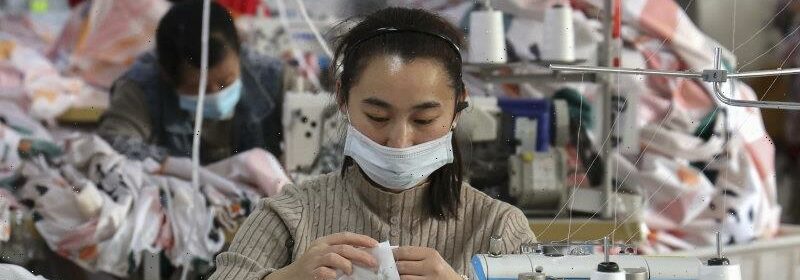China’s COVID wave a ‘key risk’ for Australian economy: Chalmers

Treasurer Jim Chalmers has warned the surge of coronavirus cases triggered by the Chinese government’s abrupt removal of tough restrictions poses a major risk to the Australian economy this year and is already disrupting local supply chains.
China’s factory activity shrank for the third straight month in December, recording its biggest drop since the pandemic began, in a sign the infections sweeping across the country are already hitting the superpower’s manufacturing industry hard.
Treasurer Jim Chalmers said the government was closely monitoring the situation in China.Credit:Janie Barrett
“The impact of COVID on China and on supply chains is one of the key risks to our economy in 2023,” Chalmers said on Monday.
“We are heavily reliant on Chinese markets and Chinese work forces for a lot of the goods in our economy. It’s really right across the board.”
“And so as we look ahead to what will be a challenging year for the global economy, a big part of that, in a whole range of industries, will be the pressure on supply chains brought about by this COVID wave in China,” he added.
Chalmers said many financial analysts expect conditions to worsen in China before they improve, a major concern given the nation remains Australia’s largest trading partner.
“The COVID wave in China is already having a substantial impact on supply chains, and we expect that to get more difficult, before it eases,” he said.
Chalmers added the Albanese government was closely monitoring the knock-on effects for the Australian economy as China moves away from a “zero COVID” approach to managing the pandemic.
The federal government will introduce mandatory COVID-19 testing for travellers arriving from China on Thursday, a policy driven by doubt about the accuracy of the Chinese government’s coronavirus data.
The Chinese Centre for Disease Control and Prevention reported one new COVID-19 death on the mainland on Sunday, the same as a day earlier, when it reported 5,138 official confirmed cases.
Experts say the actual number of infections is likely to be significantly higher given mass testing is no longer in operation.
Betashares chief economist David Bassanese said the speed of China’s transition away from a COVID-zero policy had surprised Australian businesses.
According to Bassanese, disruptions at factories due to the virus will hurt businesses across the board, with Australian manufacturers and retailers reliant on imports the hardest hit.
“There could also be disruptions in all manner of consumer electronics. The short-run impact is that it’s going to make supply chain problems worse, not better.”
Despite expectations of short-term pain for supply chains, some sectors are focused on the long-term gains that could be on offer after China retreats from its COVID-zero stance. Mining stocks rallied in the last months of 2022 in anticipation that China’s reopening would bolster Australian mineral exports.
“We suspect it won’t just be a weaker US dollar supporting commodity prices, a recovering Chinese economy should be a positive for prices too,” MST Marquee analysts said in a note to clients.
Passengers arriving from China wait in front of a COVID-19 testing area set at the Roissy Charles de Gaulle airport, north of Paris, France.Credit:AP
Chinese President Xi Jinping, speaking in first public address since the change of policy, acknowledged the country had entered a new era in the pandemic following the removal of lockdown rules and widespread testing.
“At present, the epidemic prevention and control is entering a new phase,” Xi said in his new year’s address.
“It is still a time of struggle, everyone is persevering and working hard, and the dawn is ahead.
“Let’s work harder, persistence means victory, and unity means victory.”
Cut through the noise of federal politics with news, views and expert analysis from Jacqueline Maley. Subscribers can sign up to our weekly Inside Politics newsletter here.
Most Viewed in Politics
From our partners
Source: Read Full Article

